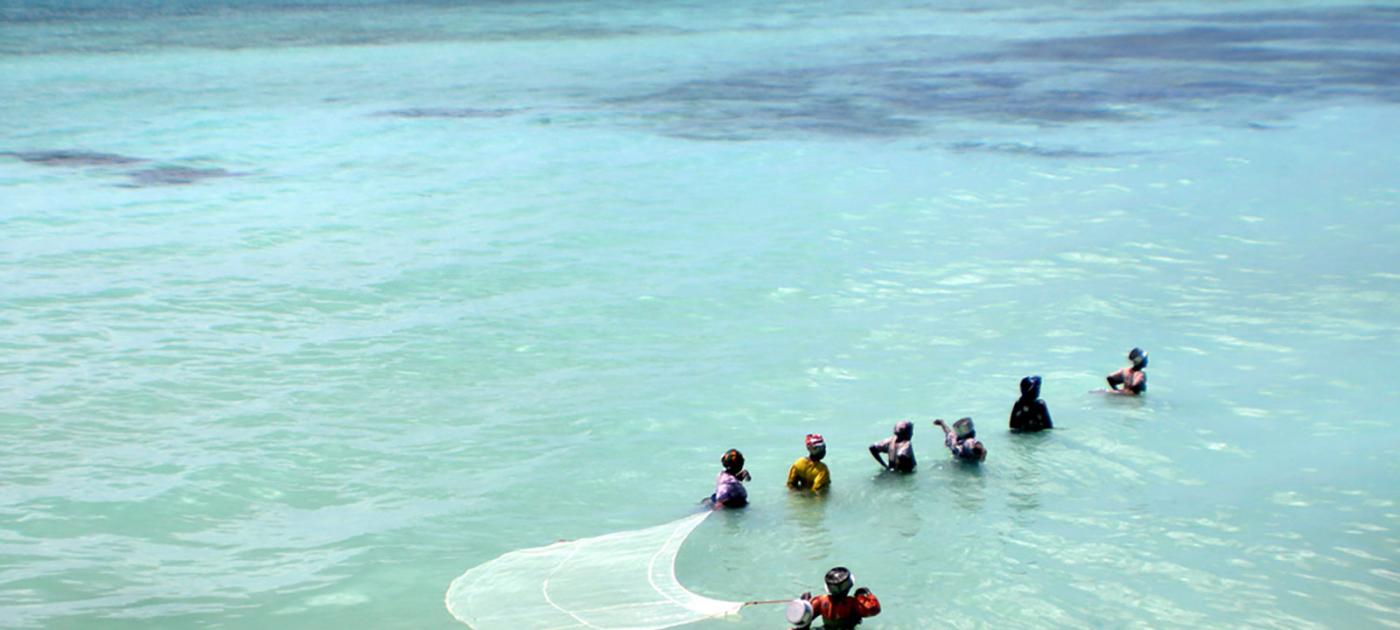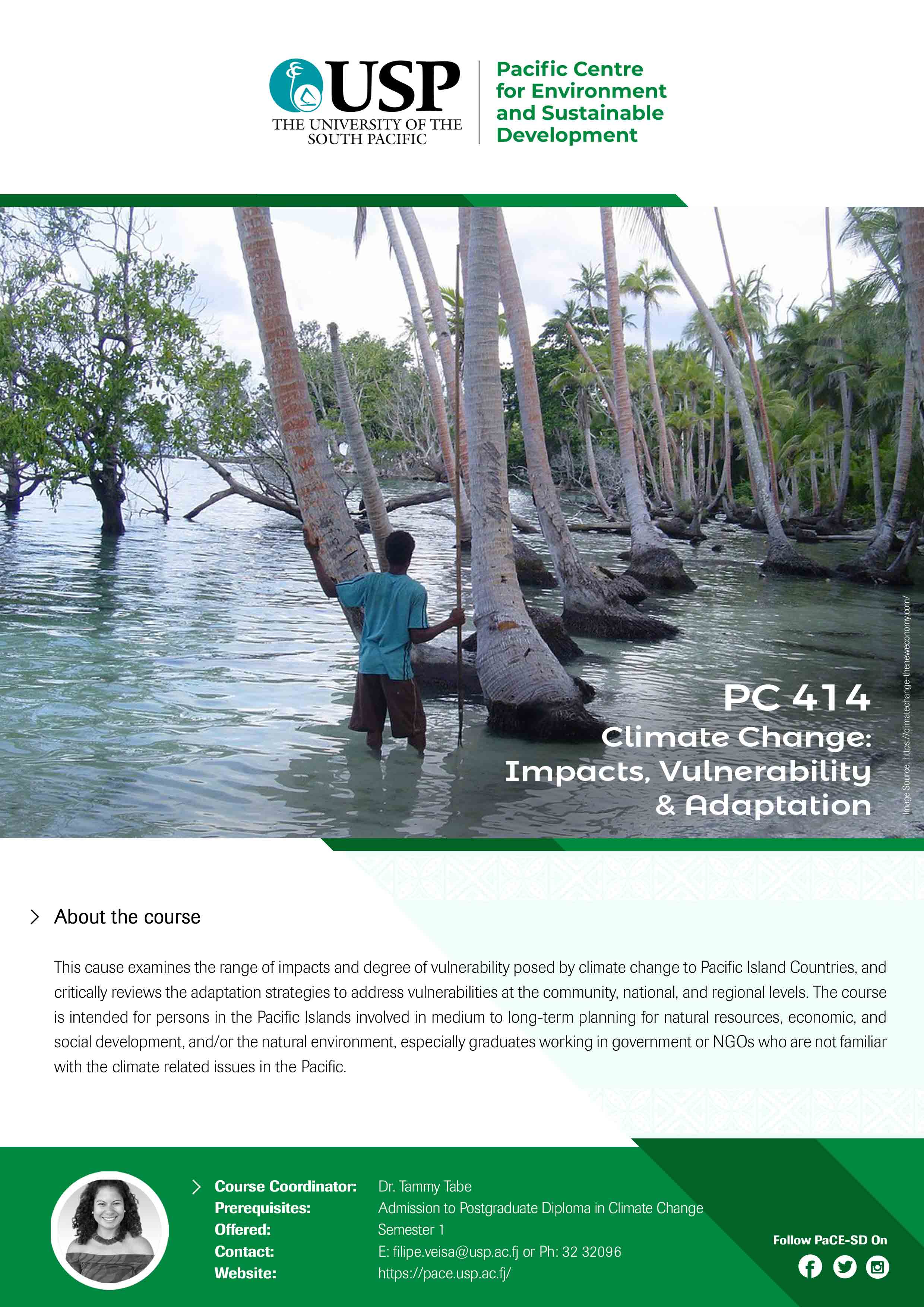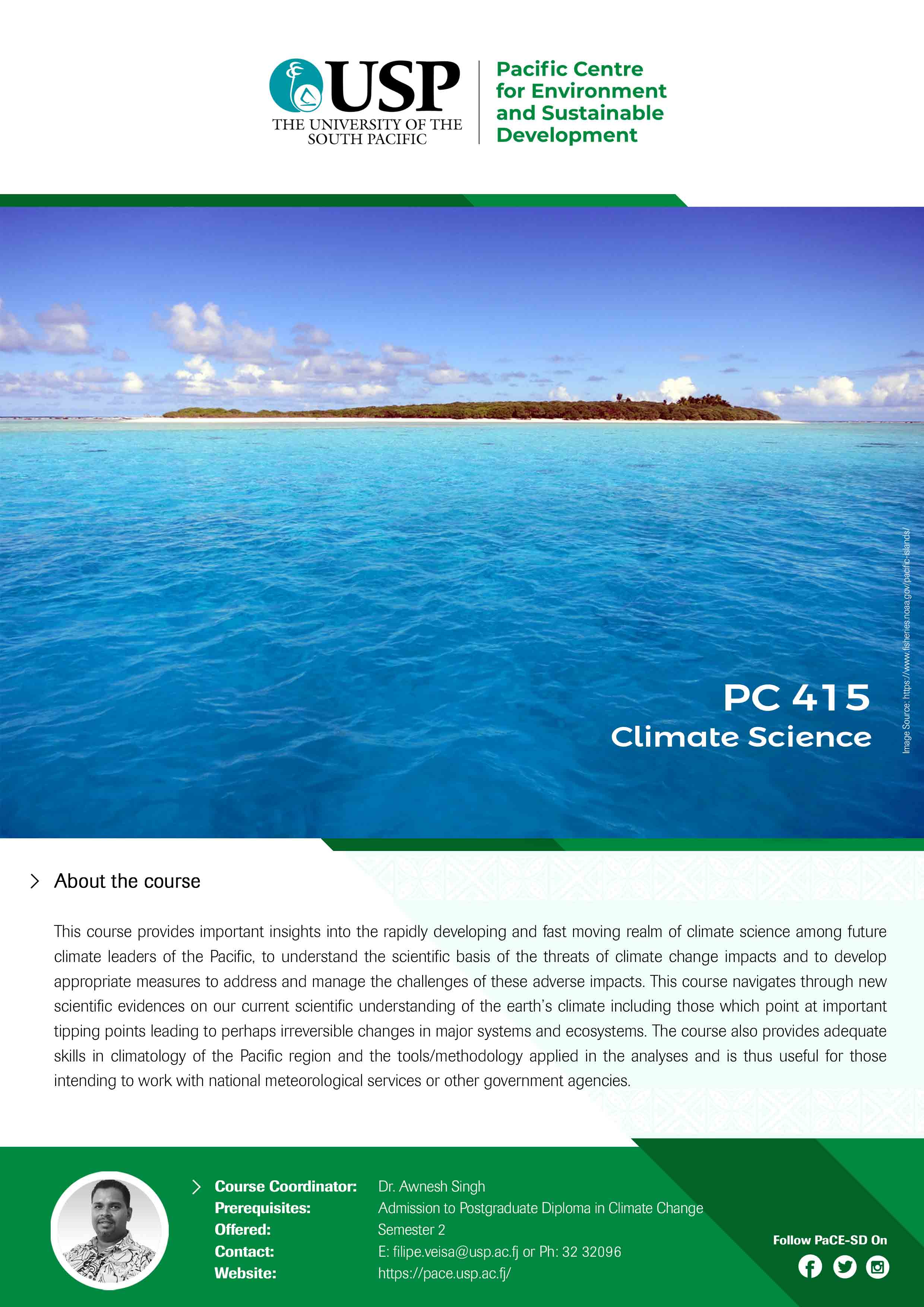At least 1 of PC412 or PC423 or PC425 or PC431 or PC432. Any remaining 400 level PC courses or one of the following 400 level courses:
DG422
MG405
MG406
MG411
MBA430
PL400
PL402
If you wish to progress onto Masters of Science in Climate Change, than you will need to do PC420, with either PC414 or PC415.
PC412: Climate Finance & Adaptation Project Design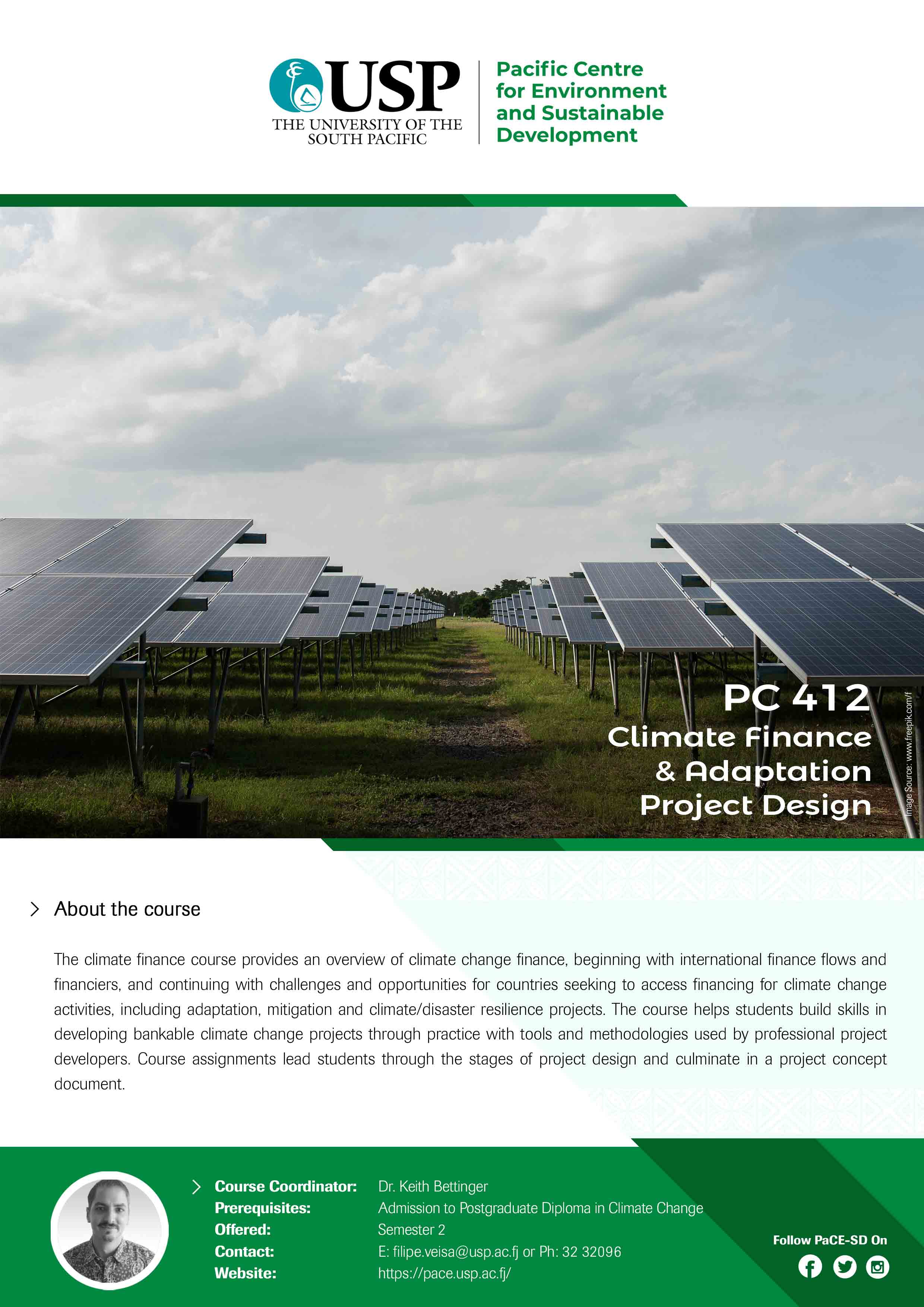
Semester: 2 Mode: O at C
Course Coordinator: Dr. Keith Bettinger
Course Description:
The climate finance course provides an overview of climate change finance, beginning with international finance flows and financiers, and continuing with challenges and opportunities for countries seeking to access financing for climate change activities, including adaptation, mitigation and climate/disaster resilience projects. The course supports students develop skills in designing related to the design of bankable climate change projects. Through course assignments, students will develop a draft climate change relevant project. The course is ideal for students interested in working on climate change projects, policy development, and enhancing financial flows to Pacific Island countries for climate change and resilience related activities.
PC420: Research Projects in Climate Change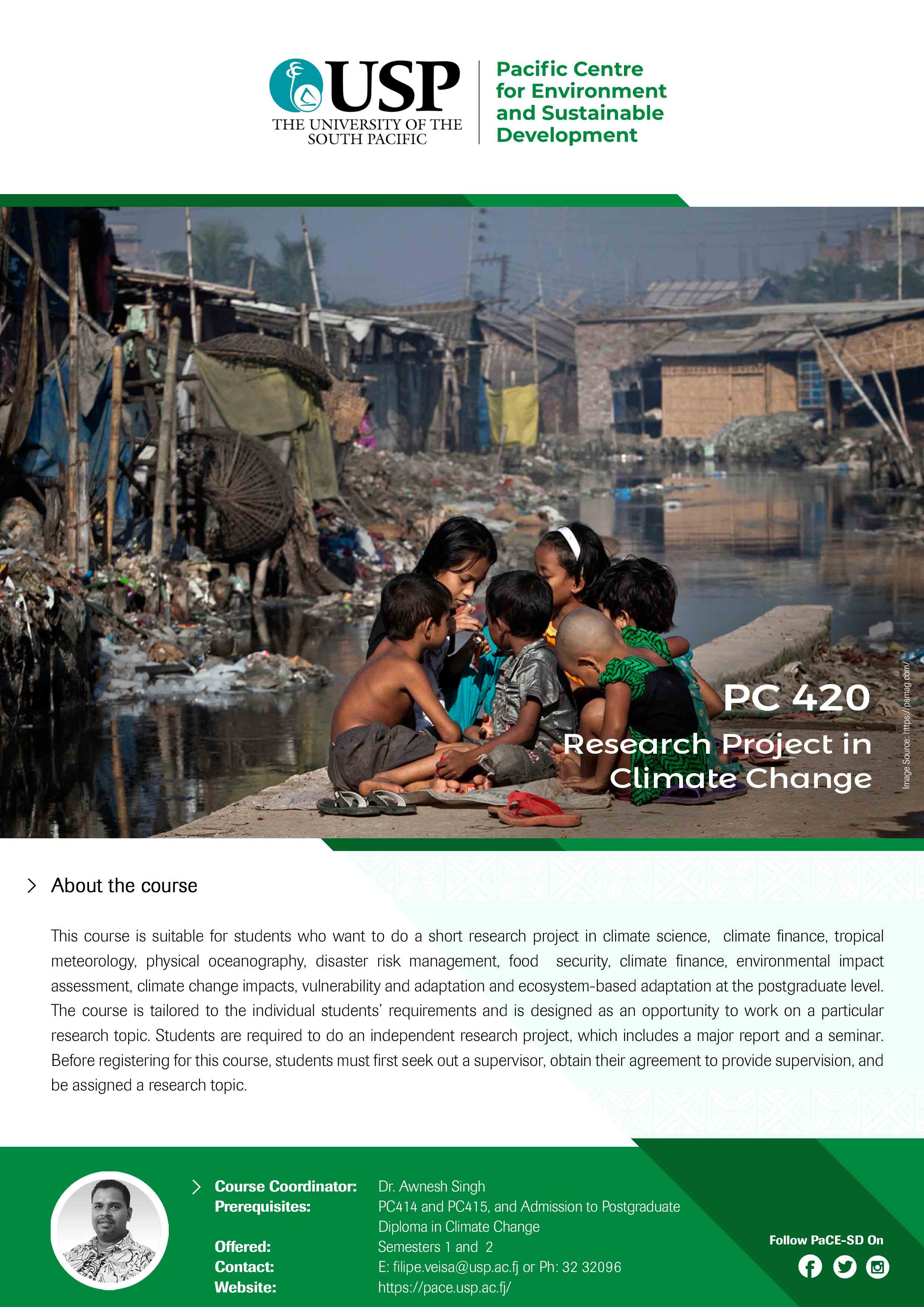
Semester: 1 & 2 Mode: O at C
Course Coordinator: Dr. Awnesh Singh
Course Description: The course is suitable for students who want to do a short research project in climate science, climate finance, tropical meteorology, physical oceanography, disaster risk management, food security, environment impact assessment, climate change impacts, vulnerability and adaptation and ecosystem-based adaptation at the postgraduate level. The course is tailored to the individual students’ requirements and is designed as an opportunity to work on a particular research topic. Students are required to do an independent research project, which includes a major report and seminar. Before registering for this course, students must first seek out a supervisor, obtain their agreement to provide supervision, and be assigned a research topic.
PC423: Food Security and Climate Change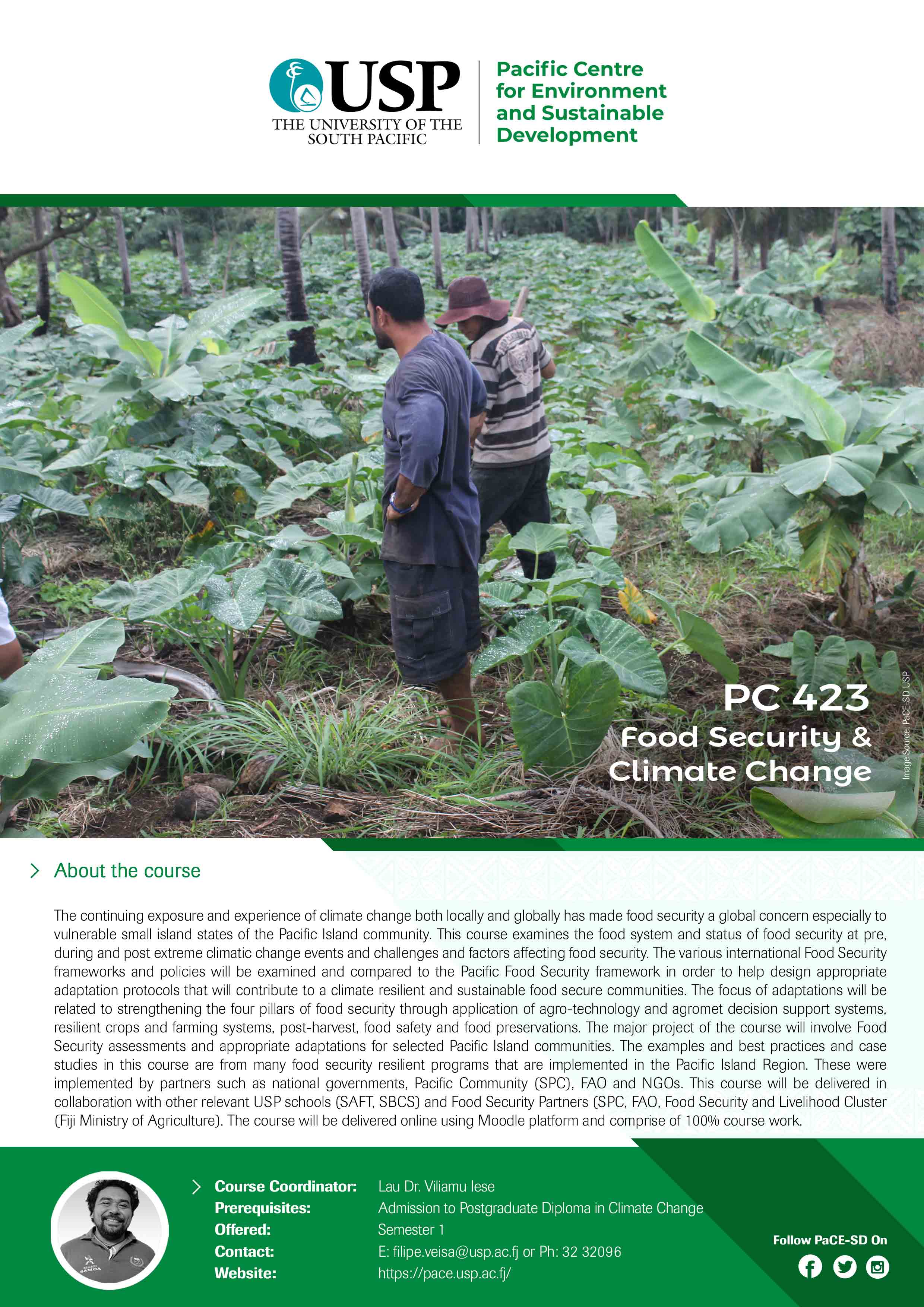
Semester: 1 Mode: O at C
Course Coordinator: Lau Dr Viliamu Iese
Course Description:
The continuing exposure and experience of climate change both locally and globally has made food security a global concern especially to vulnerable small island states of the Pacific Island community. This course examines the food system and status of food security at pre, during and post extreme climatic change events and challenges and factors affecting food security. The various international Food Security frameworks and policies will be examined and compared to the Pacific Food Security framework in order to help design appropriate adaptation protocols that will contribute to a climate resilient and sustainable food secure communities. The focus of adaptations will be related to strengthening the four pillars of food security through application of agro-technology and agromet decision support systems, resilient crops and farming systems, post-harvest, food safety and food preservations.
PC425: Environmental Impact Assessment/Strategic Environment Assessment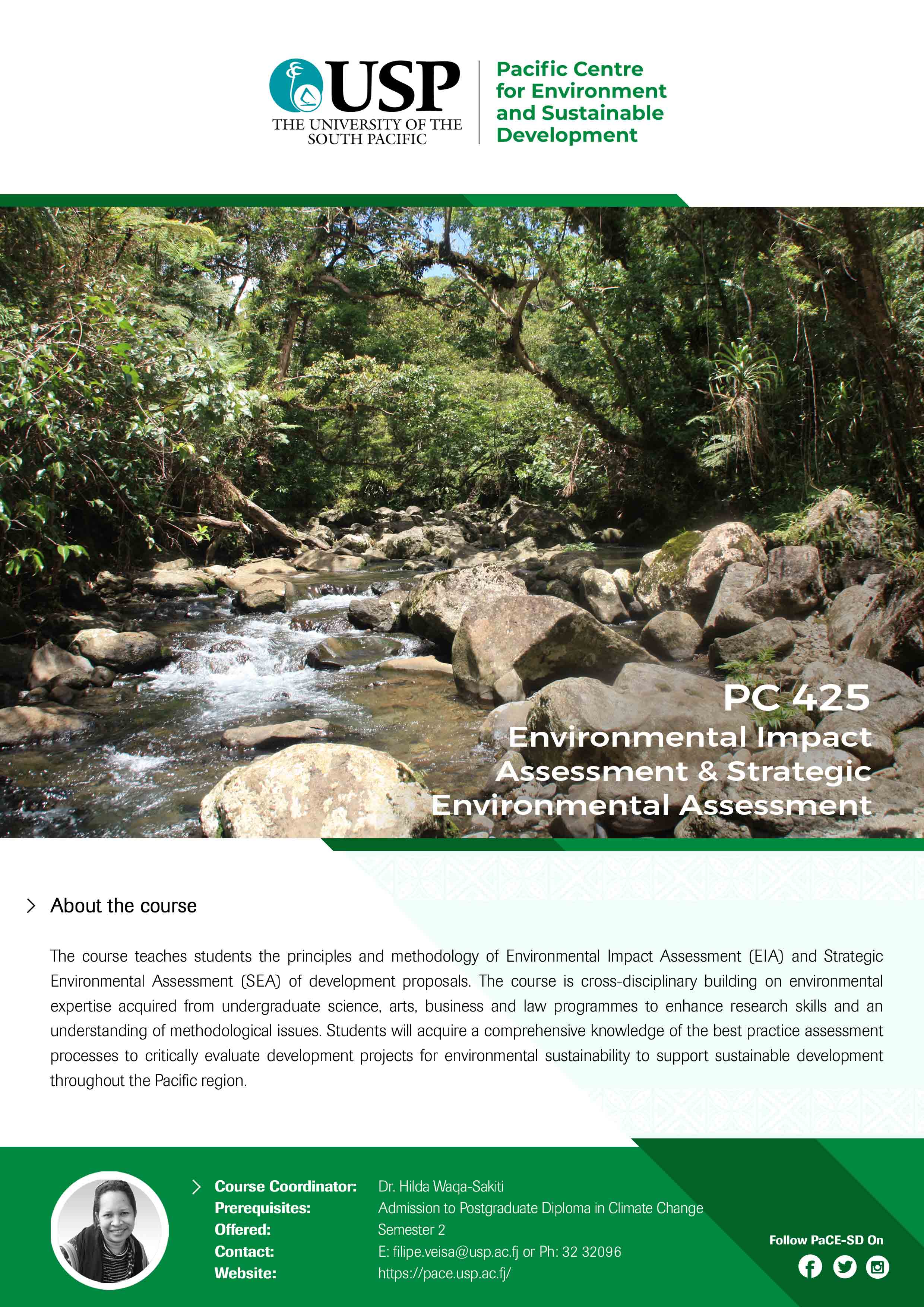
Semester: 2 Mode: O at C
Course Coordinator: Dr. Hilda Sakiti – Waqa
Course Description:
The object of this course is to teach students how to effectively process Environmental Impact Assessment (EIA) and Strategic Environmental Assessment (SEA) of development proposals from strategic and project perspectives. A brief critical analysis of the social impact assessment process will be addressed and linked to the overall EIA/SEA process. It is adjunct to the specialist environmental skills developed in our undergraduate science, arts, business and law programs. Students will acquire a comprehensive knowledge of the best practice assessment process for achieving sustainable development whereby specialist skills can be effectively applied to ensure that development throughout the Pacific region is sustainable.
PC431: Disaster Risk Reduction for Resilience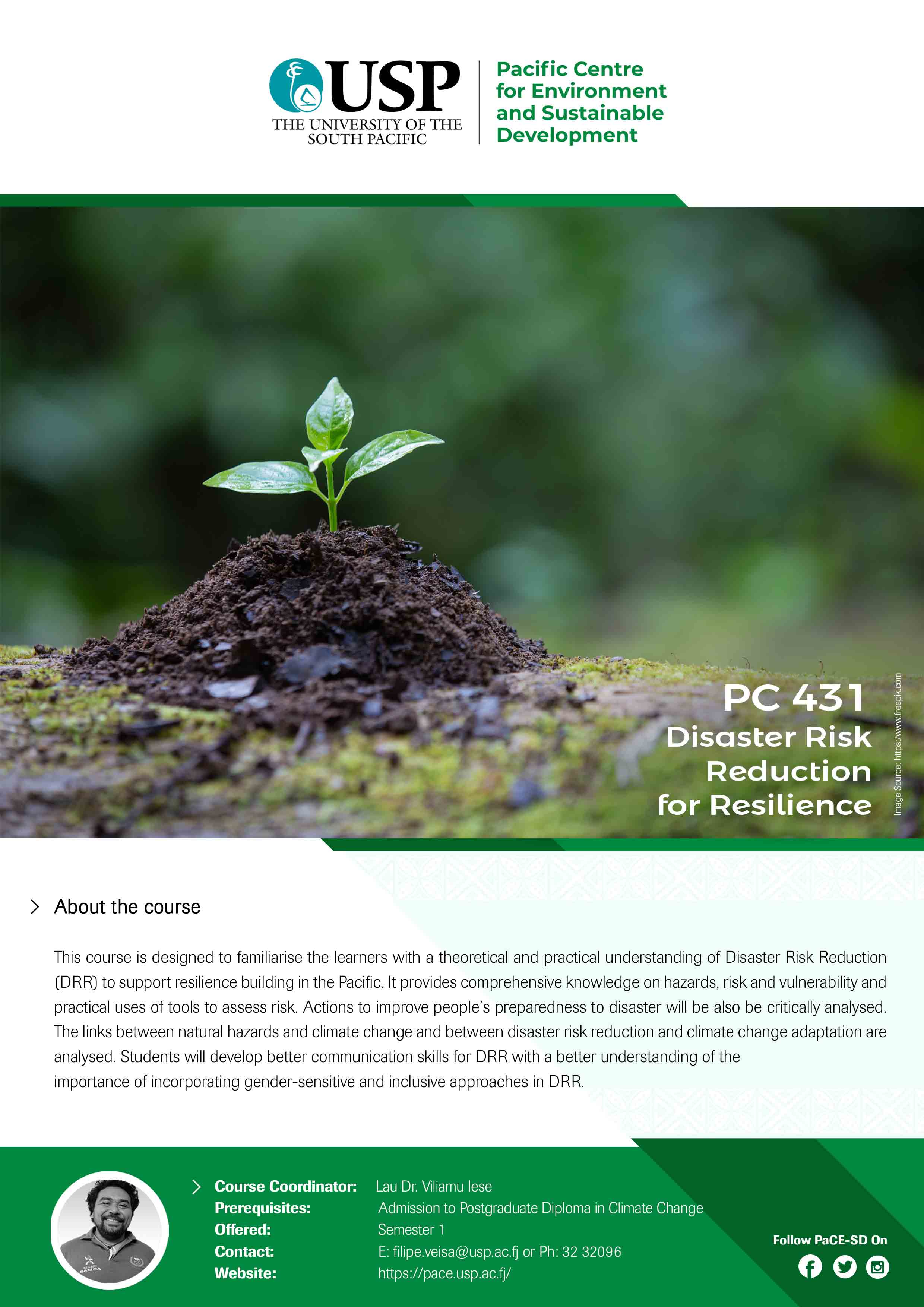
Semester: 1 Mode: O at C
Course Coordinator: Lau Dr Viliamu Iese
Course Description:
This course is designed to familiarise the learners with a theoretical and practical understanding of Disaster Risk Reduction (DRR) to support resilience building in the Pacific. It provides comprehensive knowledge on hazards, risk and vulnerability and practical uses of tools to assess risk. Actions to improve people’s preparedness to disaster will be also be critically analysed. The links between natural hazards and climate change and between disaster risk reduction and climate change adaptation are analysed. Students will develop better communication skills for DRR with a better understanding of the importance of incorporating gender-sensitive and inclusive approaches in DRR.
PC432: Disaster Response Recovery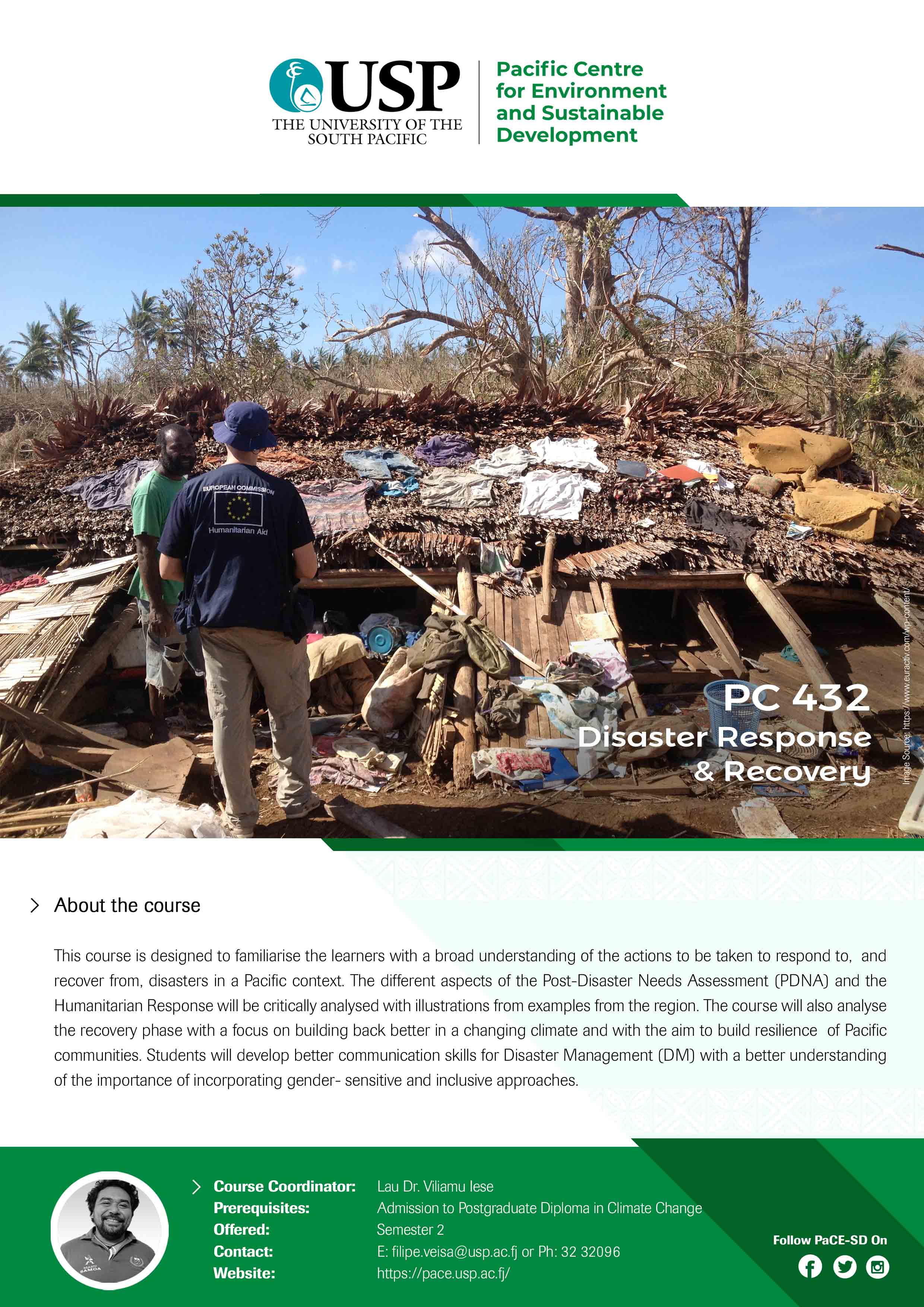
Semester: 2 Mode: O at C
Course Coordinator: Lau Dr Viliamu Iese
Course Description:
This course is designed to familiarise the learners with a broad understanding of the actions to be taken to respond to, and recover from, disasters in a Pacific context. The different aspects of the Post-Disaster Needs Assessment (PDNA) and the Humanitarian Response will be critically analysed with illustrations from examples from the region. The course will also analyse the recovery phase with a focus on building back better in a changing climate and with the aim to build resilience of Pacific communities. Students will develop better communication skills for Disaster Management (DM) with a better understanding of the importance of incorporating gender-sensitive and inclusive approaches.
